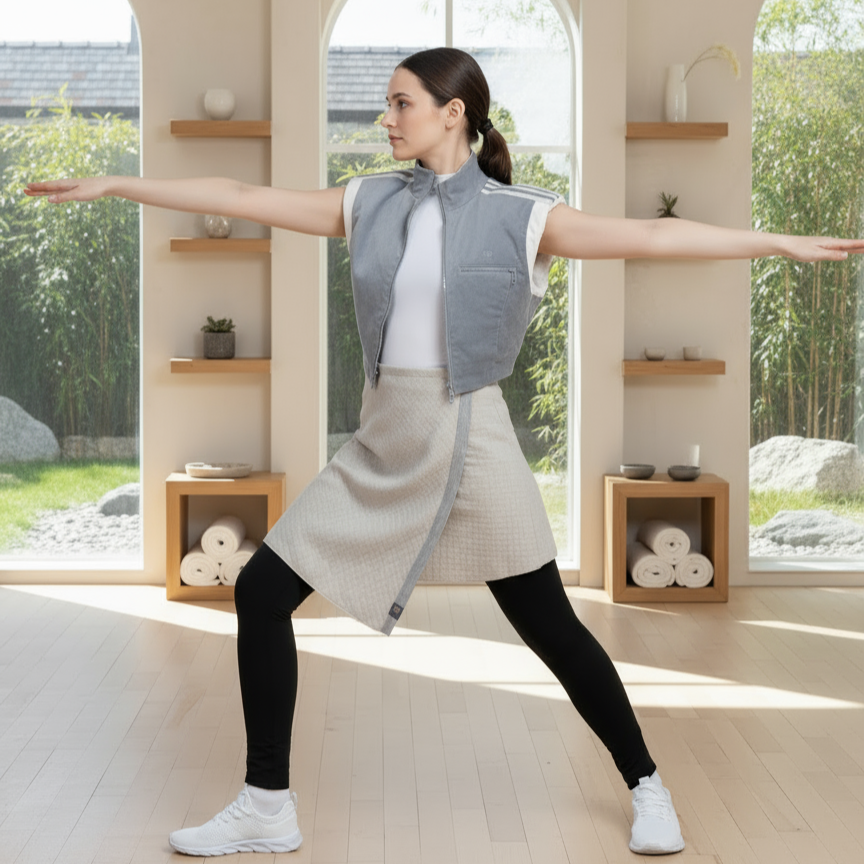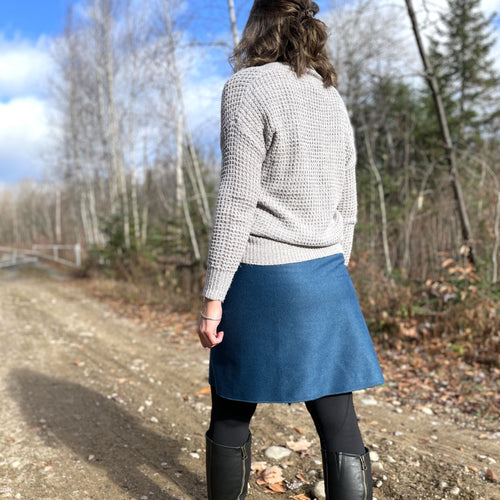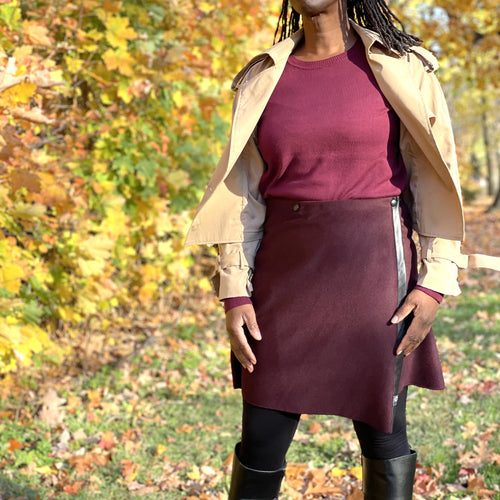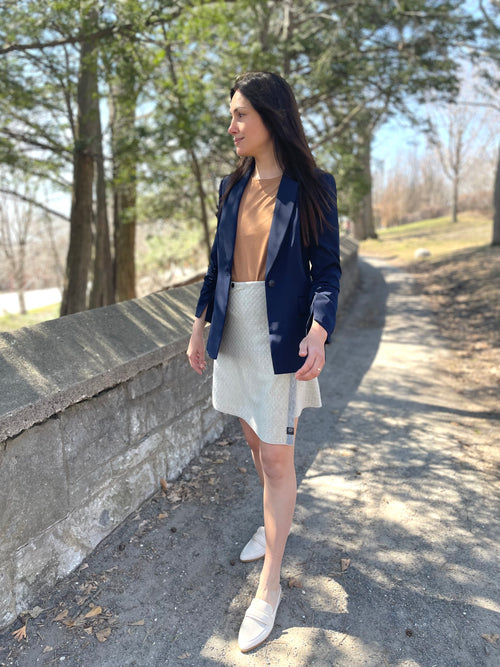Un accessoire polyvalent qui s’adapte à chaque instant : portez-le en surjupe nordique, en châle élégant ou comme une couche supplémentaire de confort sur votre tenue.
Taille unique et compagnon idéal des changements de saison.
TUKUAN incarne le style canadien : élégant, polyvalent et tellement confortable

One piece. Endless ways to wear it.
Conçu pour vous suivre partout et en toute saison, léger et pratique, il se transforme avec aisance pour s’adapter à votre mode de vie. Portez-le seul, par-dessus des collants, un legging ou un pantalon. Besoin d’une couche supplémentaire ? Enveloppez-le autour de vos épaules comme un châle douillet.
Grâce à son système de boutons-pression ajustables, votre TUKUAN s’adapte à vous — même si votre taille varie. Une seule pièce, des possibilités infinies.
Nos clientes adorent sa facilité à être stylisé : parfait pour une journée décontractée à la maison, une soirée élégante ou une aventure en plein air. Que vous choisissiez une version légère pour les temps doux ou un modèle plus chaud pour les journées froides, chaque TUKUAN est conçu pour vous offrir confort, confiance et liberté.
Fabriqué à la main au Québec
Accessoires polyvalents, réversibles, fabriqués de manière responsable et ultra-doux.
Join us on this adventure,
where trust, creativity and emancipation are the pillars of our brand.
One accessory, endless ways to express yourself.













